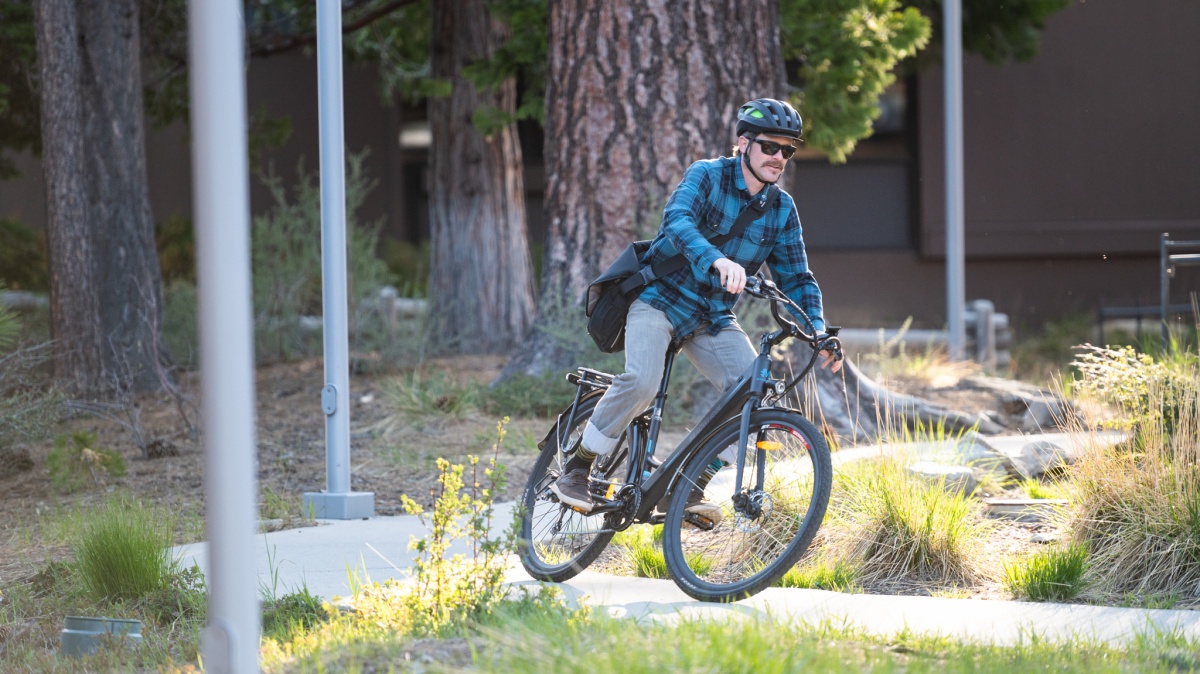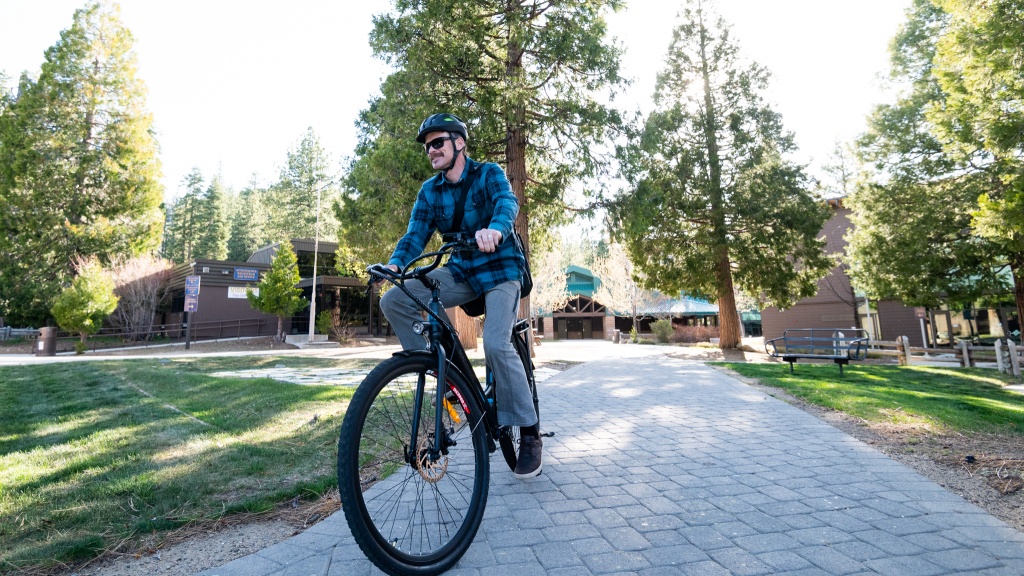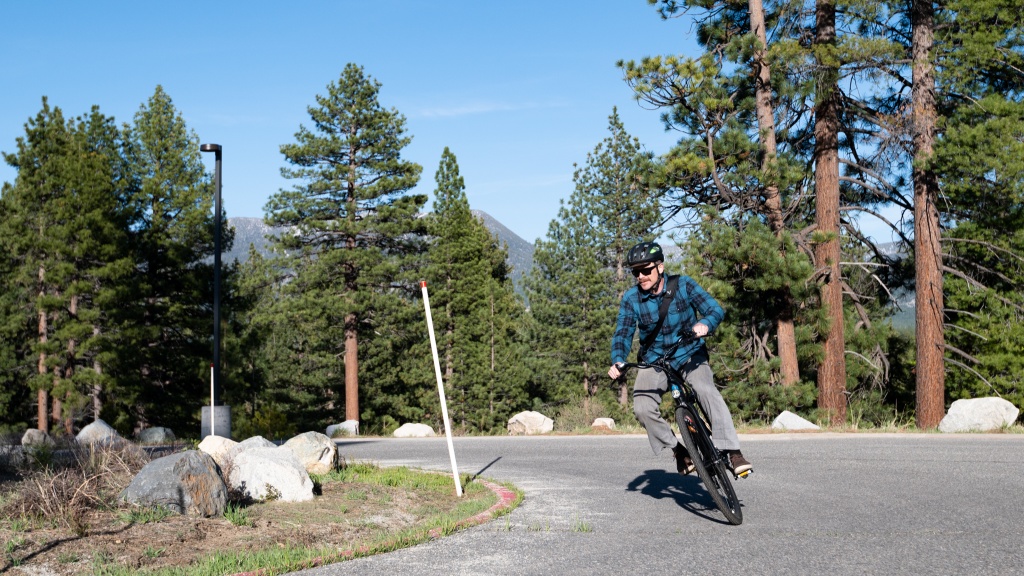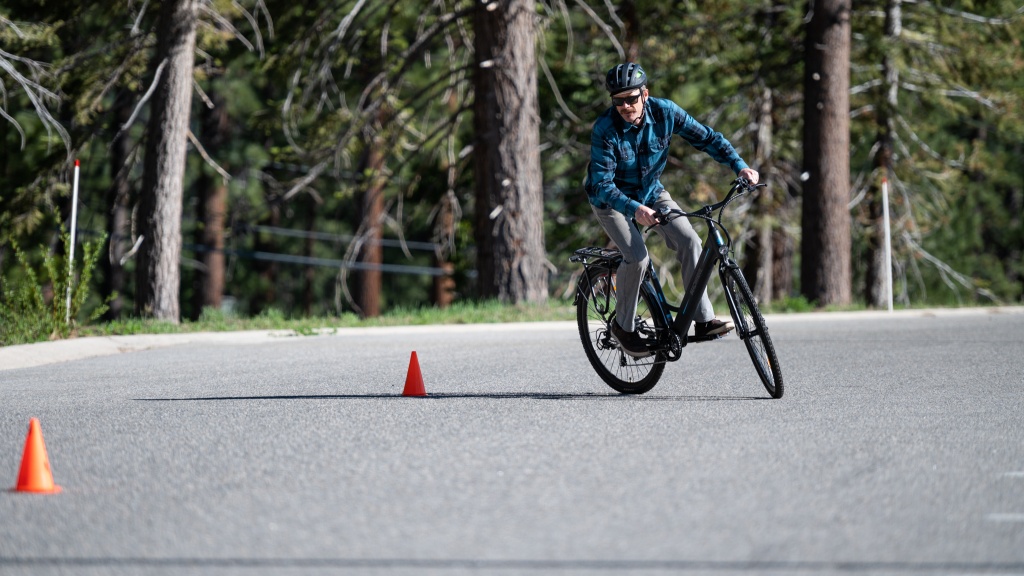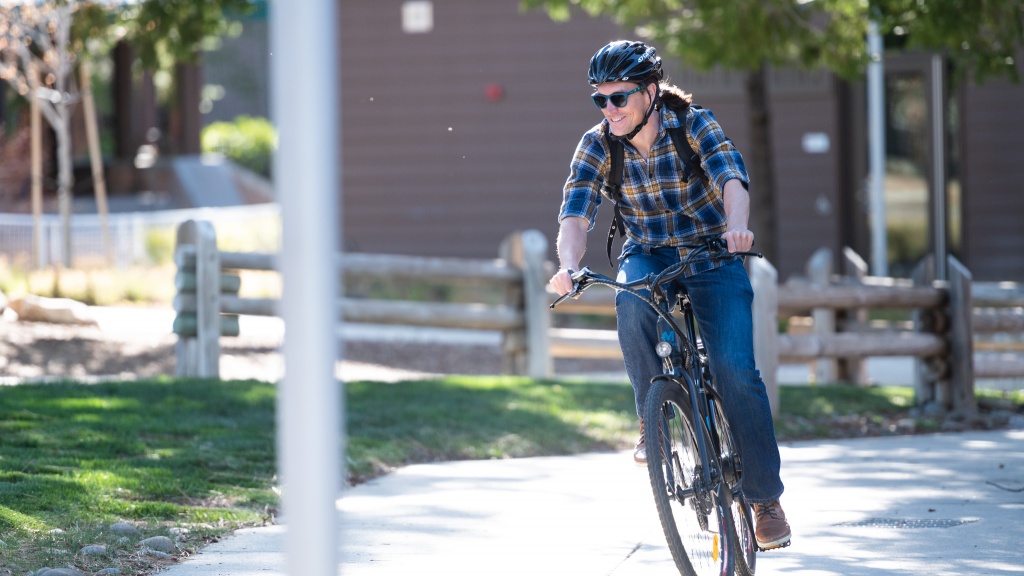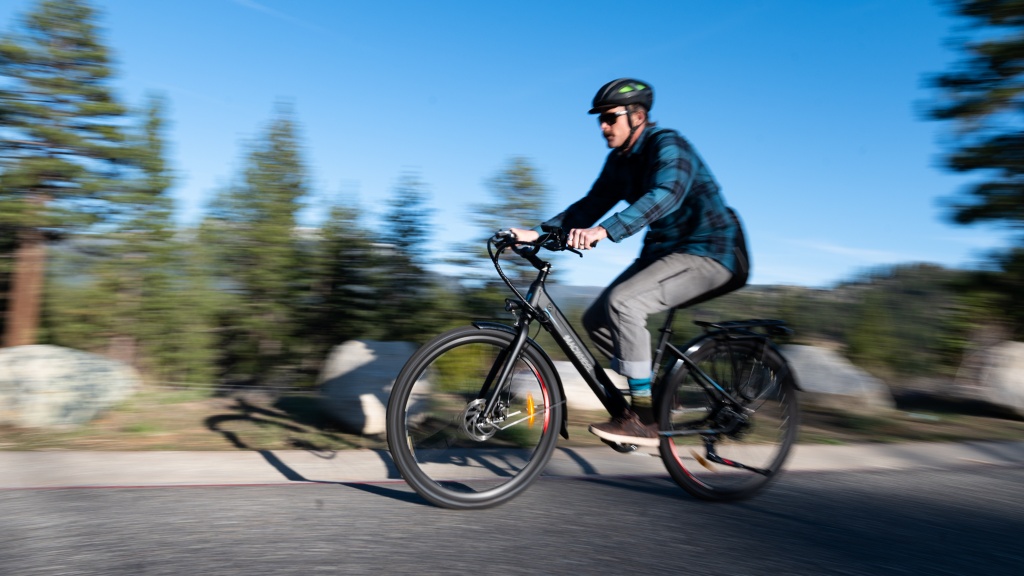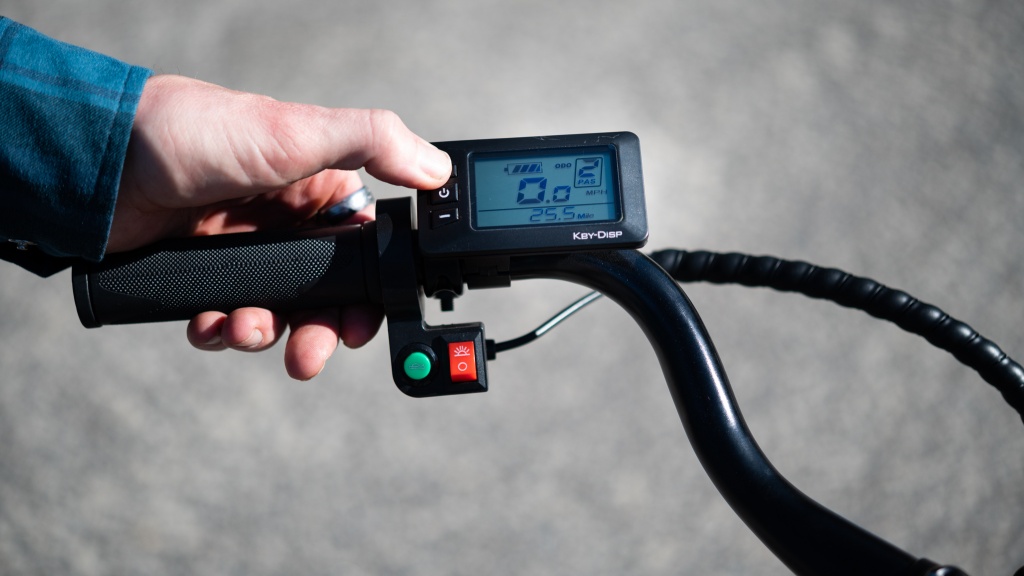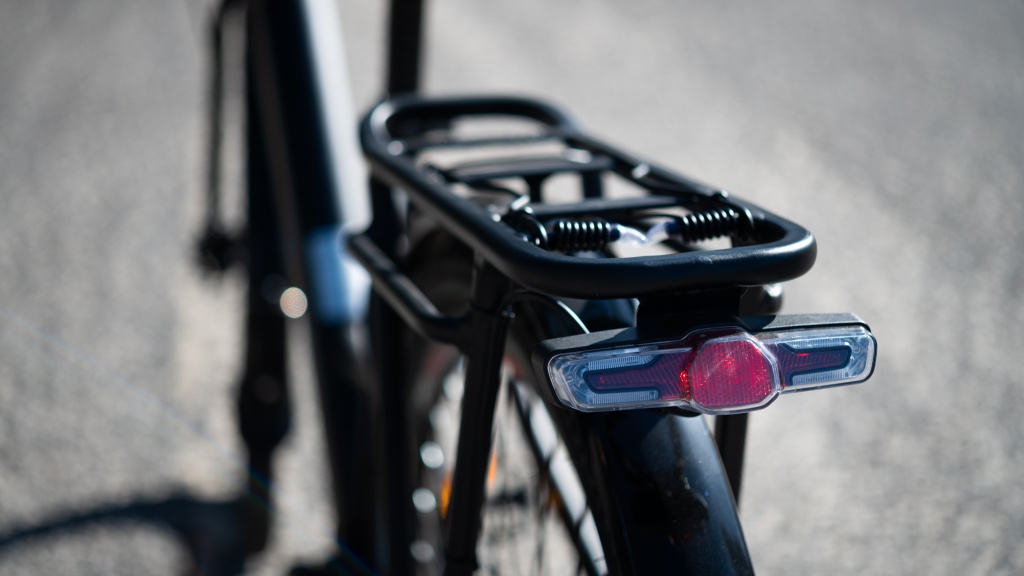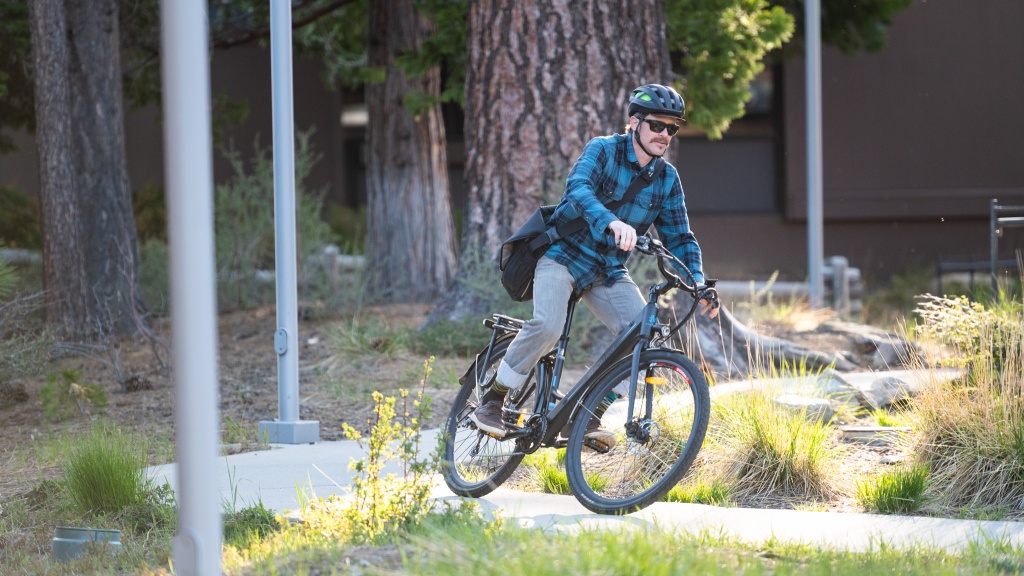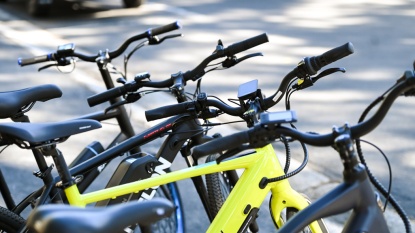Macwheel Ranger 500 Review
Our Verdict
Our Analysis and Test Results
Macwheel makes several models of affordable electric bikes including the Class 2 Ranger 500 we tested. This bike's clean lines, integrated battery, and wealth of features helped it stand out from the crowd of cheaper-looking e-bikes. We tested it against a diverse selection of inexpensive models, and while it may not be the most powerful or the fastest, it rose to the top as the best overall and is our Editor's Choice Award winner.
Performance Comparison
Ride
The Macwheel Ranger thoroughly impressed us with its best-in-test ride quality and refined feel. This bike rolls smooth and fast with excellent high-speed stability and calm, steady, and predictable handling. It's also impressively comfortable with a relaxed cruiser-bike style, loads of adjustment, and it comes packed with useful user-friendly features. The Ranger was head and shoulders above the competition in this metric.
One of the first things we noticed about the Ranger 500 was how impressively smooth it felt when rolling. It comes with larger diameter 700c wheels, which is the same you'd find on a road bike or a 29-inch wheeled mountain bike, and they roll fast, carry momentum well, and smooth over rough patches of road better than smaller wheels. We felt the larger wheel size also translated to very predictable and steady handling when turning. It has a longer wheelbase and a slightly longer turning radius than some, but it has a stable and confidence-inspiring feel when rounding a bend or coming around a corner. That long wheelbase also does wonders for its stability at speed, and we found it to have a calm and planted demeanor when hurtling down a steep hill as fast as we could possibly go.
Like most electric bikes, the Ranger 500 is on the heavier side at just over 48 lbs. Despite its heavy weight, we found it to be one of the best and easiest to ride without pedal assistance. On flat or gently rolling terrain, it felt a lot like an everyday beach cruiser when riding it with human power only. The seven gears provide a wide range for everything but the steepest of hills, and we found the Shimano Tourney drivetrain to work well during testing. We were also relatively impressed with the mechanical disc brakes, and in our braking distance test, we were able to go from full pedal-assisted speed to a complete stop in right about 20 feet.
The Ranger 500 was also the most comfortable electric bike we tested. The cruiser bike-like style lends itself to a nice upright body position, and there was ample adjustment in the seatpost, even for our long-legged tester with a 32-inch inseam. In fact, Macwheel claims a user height range of 5'1" to 6'3", and it seems like this bike actually has enough seat height adjustability to accommodate taller riders. Additionally, it has an adjustable stem so you can further personalize the fit and comfort of the handlebars. The Ranger also comes with full-size fenders to protect the rider from being sprayed with water, as well as a rear cargo rack, lights, and a horn. The head and tail lights run off the bike's battery and are easily turned on with the flip of a switch for added convenience and safety.
Range
The Machwheel Ranger impressed us with its distance range and was a close second in our testing. This didn't come as too much of a surprise considering its larger 360Wh battery and big, fast and smooth-rolling, 700c wheel size. It may not be the fastest electric bike we tested, but it can certainly travel quite a long way on a single charge.
Macwheel estimates a range of 19-25 miles using the throttle and 37-50 miles using pedal assist. While we never rode it quite 50 miles, we wouldn't be surprised if you could while using one of the pedal-assist modes. Our range test was performed using the throttle only, and the Macwheel was able to travel 19.55 miles with 971 vertical feet of elevation gain/loss in a time of 1 hour and 21 minutes. During the test, the average speed was 14.5 mph with a maximum speed of 21.7 mph (while cruising downhill). We feel this range is quite impressive and could likely be increased slightly if riding perfectly flat terrain or easily doubled with a decent pedal-assist effort.
Power
The Ranger 500 wasn't the most powerful electric bike we tested, but its performance was solid, considering its 250W motor. This bike can be ridden with the throttle only in full-electric mode, or while using its five pedal assist modes to magnify your pedaling efforts. While it may not have been the fastest bike we tested, it wasn't terribly far off, and our testers rarely felt that it was underpowered.
The Ranger 500 has a 250W brushless rear hub motor and has a claimed top speed of 15.5 mph. Interestingly, in our throttle-only speed testing, we found that it actually topped out right around 17.5 mph on perfectly flat ground using the throttle only. While this isn't quite as fast as the models we tested with more powerful 350W motors; it was one of the fastest among the models with the smaller motor size. Its acceleration felt about average, neither the slowest nor the fastest, while getting up to its top speed. While range testing, we found that it held speed reasonably well uphill, and it was able to crest tour short test hill at around 10 mph. You can pedal while using the throttle, of course, but you will need to be sure to shift the pedal-assist setting down to 0 for the throttle to work. Whenever using the throttle, or the pedal assist, using the brakes shuts off all the power while they are applied.
In its factory settings, the Ranger 500 has five pedal assist modes as well as no assist or fully human-powered mode. The settings, 1-5, provide 50%, 61%, 73%, 85%, and 96% of support respectively. The support comes on after a half pedal stroke and progressively ramps up as opposed to coming on suddenly with full force. We found that we actually prefer the progressive onset of the support, as it feels less jumpy than some of the other bikes we tested. Like most of the competition, it provided the same level of pedal assistance regardless of how quickly the pedals were turning, and it tended to stay on for a second or so after pedaling stopped. We found that we could get the Ranger up to 20 mph in its highest output setting while pushing a big gear, but it was challenging to get it to go any faster than that. We also noticed that once up to speed, the pedal assistance tended to lag a little bit before re-engaging. One highlight of the Macwheel's pedal-assist system is that it can be customized through the computer/display. It is possible to change the number of support settings so you can have 3, 5 (factory setting), 7, or 9 modes. We highly recommend keeping track of the Key Display user manual to be able to take advantage of advanced features like this.
User Interface
The Ranger 500 easily took top honors for its more advanced and excellent user interface. The bike's interface is a Key Display which consists of a handlebar-mounted unit with intuitive and economically friendly controls and a large easy to read digital display. Additionally, it is customizable, and it comes with detailed instructions so you can configure the screen to your liking and even make adjustments to the pedal-assist settings.
The control/display unit on the Ranger 500 is located right next to the left grip on the handlebar. The control buttons are situated on the left side of the unit closest to the hand, and they are effortless to reach with your thumb. There are three buttons, power is in the middle, and it turns the bike's power on or off. The + and - buttons are used to shift up or down through the bike's pedal assist settings. The display screen is large and crisp and displays a variety of information at a glance. In the stock settings, the screen displays the current speed, pedal-assist setting, remaining battery life, and distance traveled. The information displayed can also be customized through the computer itself, and there are very detailed instructions included that are not only helpful but necessary to do so.
Assembly
The Ranger 500 scored about average for its ease of assembly. Like most of the bikes we tested, it came mostly assembled, and it required only about 45 minutes and a few simple steps to get it from the box to ready to roll.
The Ranger arrived in a box well protected against shipping damage. After removing it from the box and taking off all of the protective materials, we found that the bike was already about 80% assembled. The remaining assembly included installing the front wheel, handlebar, seat, and seatpost. There was also the added step of attaching the front fender and headlight, which only took a couple of extra minutes. It comes with detailed instructions as well as a small kit with all of the necessary tools to complete the job. The brakes and derailleur were also in good working order and did not require any adjustment before riding. After pumping up the tires to within their recommended pressure range, we plugged it in for charging to prepare for our first test ride.
Value
The Machweel Ranger 500 is the most expensive electric bike we tested, yet we still feel it is a good value because it is our highest-rated model and our Editor's Choice Award winner. This bike looks great, handles well, and has a great distance range, plus it comes loaded with features like head and tail lights, fenders, and a cargo rack. You can undoubtedly get an electric bike for less, but none that we tested can match the features, comfort, or performance of the Ranger.
Conclusion
The Ranger 500 is an excellent affordable electric bike and the winner of our Editor's Choice Award. Whether for commuting, running errands, or just getting out for some fresh air, this sleek bike looks good and performs better than the competition in this price range. Not only is this bike comfortable with an excellent smooth and stable ride quality, but it has a great distance range, and it comes packed with useful features. It may not be the fastest, but the Ranger is easily the best overall electric bike we tested.


